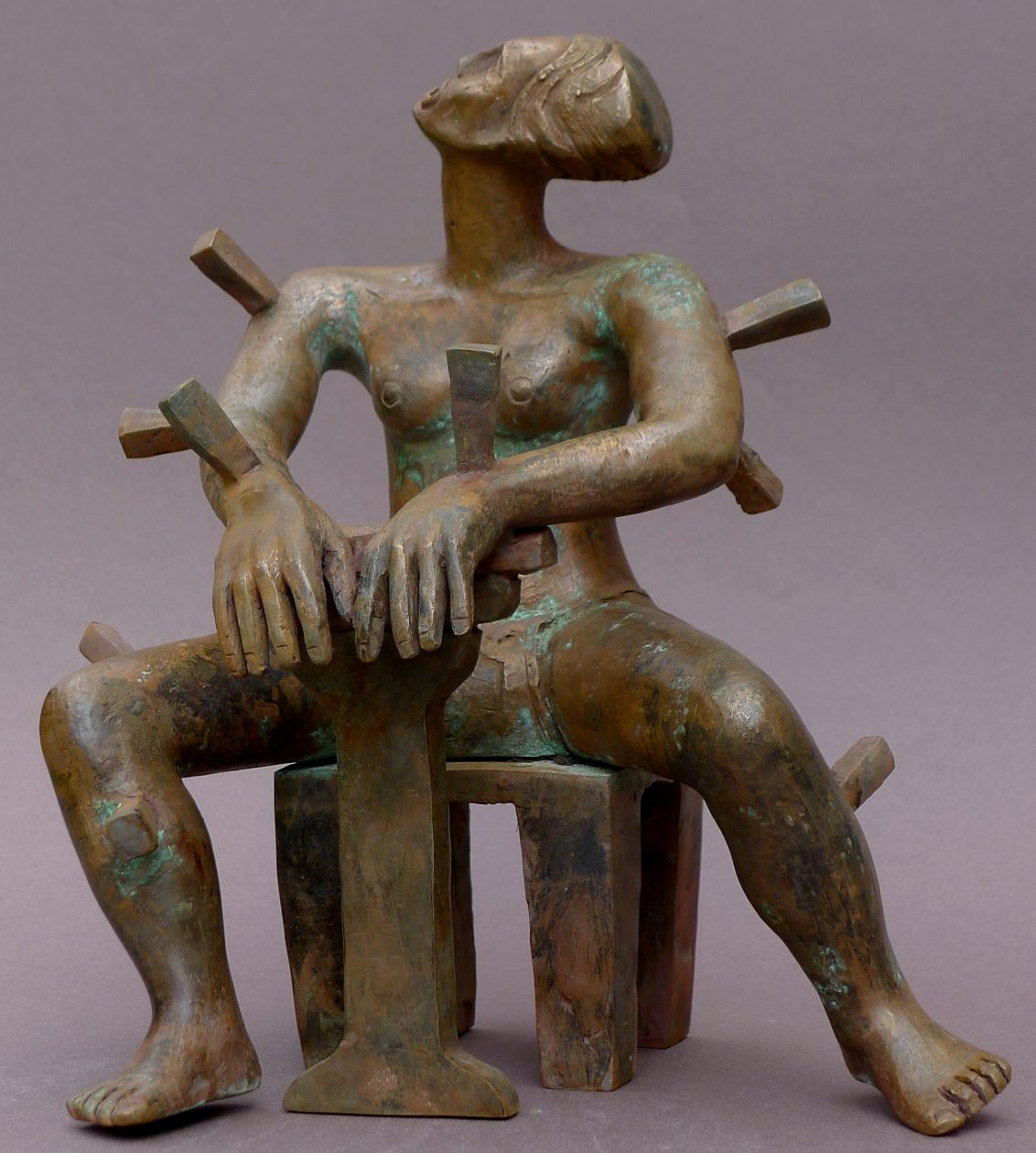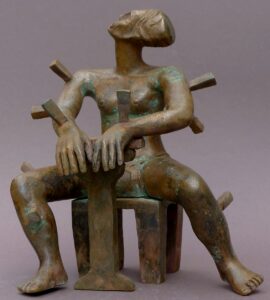
Part 2 MARK STATMAN: MEXICO AND THE POETRY OF GRIEF AND CELEBRATION
Part 2 of my interview with Mark Statman looks closely at Mark’s Latin American poetic influences, his life in Mexico and ends with an extract


Accepting failure makes success of life – Alan Ginsberg.
For many boys, sport is vitally important. For them it’s a great outlet and a laugh. It’s also a measure of strength and skill and daring and timing. So the top tennis players use a complex mental map of where a ball might go and make split-second adjustments for spin, speed and bounce. Based on experience, the player’s coordination between barely-conscious calculation and muscle-reaction is a wonderful dance. And watching or playing sport can be a knife-edge experience where a hair’s breadth separates success and failure.
I went to boys’ schools where status depended very much on how good or bad you were on the field. It was great for some, but I couldn’t run fast or change direction at will. If a ball was in the air I’d drop it, if it was on the ground I’d trip over it and when the team advanced I was the figure lurking at the back trying to avoid contact. So I belonged to the losers.

At the time I felt alone and exposed. I was ashamed of my body and imagined everyone was shouting at me. If they were, it was usually the teachers! As a result I was all over the place. My body felt heavy and my arms and legs wouldn’t do what I told them. I tried to hide my fear – so I kept one foot on the bottom while swimming and I ran round the pitch in rugby trying to look vigorous and alert. But my panic showed through. And in the changing room afterwards I was picked on. The bullying undermined me and the next match , of course, I was worse again. In sport some people have their shortcomings relentlessly exposed.
But for the people it suits, sport is a character-building activity. It teaches perseverance and working as a team. The fitness it brings can help both body and mind and the individually competitive side may develop into ‘running your own race’ and breaking records. And there is something beautiful and inspiring about peak performance. It can demonstrate a kind of selfless bravado or what Saul Bellow describes as: ‘stillness in the midst of chaos… something to do with an arrest of attention in the midst of distraction’. So runners sometimes enter what they call the zone, a meditational space where time is suspended and the contest isn’t with the opponent but with oneself. And for ordinary joggers (possibly with music in their ears) it can be a floaty experience where they go beyond the limits of everyday life.
But what interests me now, is the losers. I was one, and I feel for the Gareth Southgate anti-hero who takes the blame and has to live with it. Or the backmarker lapped by everyone, who has practised for years only to fail. Losers are more interesting because they have the hardest job. When morale drops and a team is fighting ‘the drop’ every point is like a tooth extracted. And losers are important not only because the winners need them, but also because it’s through adversity that we begin to reflect. When the going gets tough we start to ask questions.
![Holman-Hunt-Scapegoat-(Manchester)[1]](https://leslietate.com/wp-content/uploads/2015/11/Holman-Hunt-Scapegoat-Manchester1-300x215.jpg)
Of course losing in sport is often through no fault of one’s own. Injury or accident can keep a sports star out for years, and it takes a particular mental toughness to come back, or to know when to quit. It’s often through pain and loss that we discover our true selves. So losers are an example to us all. They show us how to adjust to the restrictions of our time-limited, vulnerable existence. Their injuries remind us of age and infirmity. Their depressions and collapses are part of the human condition. And their misfortunes, given proper attention, can make us more compassionate towards others when things go wrong. There’s a loser somewhere in all of us; the trick is to acknowledge it.
ABOUT LESLIE TATE’S BOOKS:

Part 2 of my interview with Mark Statman looks closely at Mark’s Latin American poetic influences, his life in Mexico and ends with an extract

I interviewed international poet and translator Mark Statman about Volverse/Volver, his 14th published collection. Mark, who has won national arts awards, is Emeritus Professor of Literary

I interviewed Lisa Dart, finalist in the Grolier, Aesthetica and Troubadour Poetry Prizes and author of The Linguistics of Light (poems, Salt, 2008), Fathom (prose

I interviewed writer Julia Lee Barclay-Morton about her experience of autism. Julia began as an experimental dramatist in New York, moving to the UK to

I interviewed Gillean McDougall from Glasgow, who edited the collaborative projects Honest Error (on Charles Rennie Mackintosh and his wife Margaret Macdonald) and Writing the
| Cookie | Duration | Description |
|---|---|---|
| cookielawinfo-checkbox-analytics | 11 months | This cookie is set by GDPR Cookie Consent plugin. The cookie is used to store the user consent for the cookies in the category "Analytics". |
| cookielawinfo-checkbox-functional | 11 months | The cookie is set by GDPR cookie consent to record the user consent for the cookies in the category "Functional". |
| cookielawinfo-checkbox-necessary | 11 months | This cookie is set by GDPR Cookie Consent plugin. The cookies is used to store the user consent for the cookies in the category "Necessary". |
| cookielawinfo-checkbox-others | 11 months | This cookie is set by GDPR Cookie Consent plugin. The cookie is used to store the user consent for the cookies in the category "Other. |
| cookielawinfo-checkbox-performance | 11 months | This cookie is set by GDPR Cookie Consent plugin. The cookie is used to store the user consent for the cookies in the category "Performance". |
| viewed_cookie_policy | 11 months | The cookie is set by the GDPR Cookie Consent plugin and is used to store whether or not user has consented to the use of cookies. It does not store any personal data. |